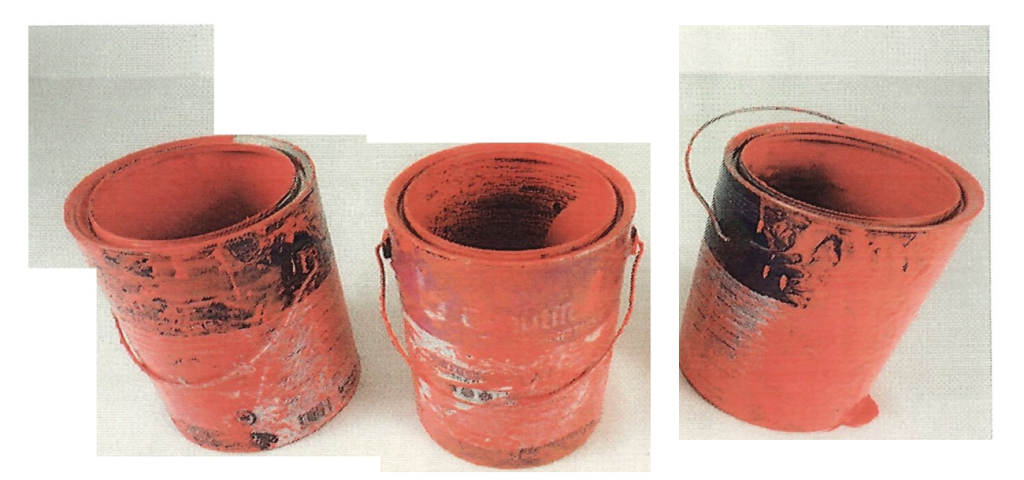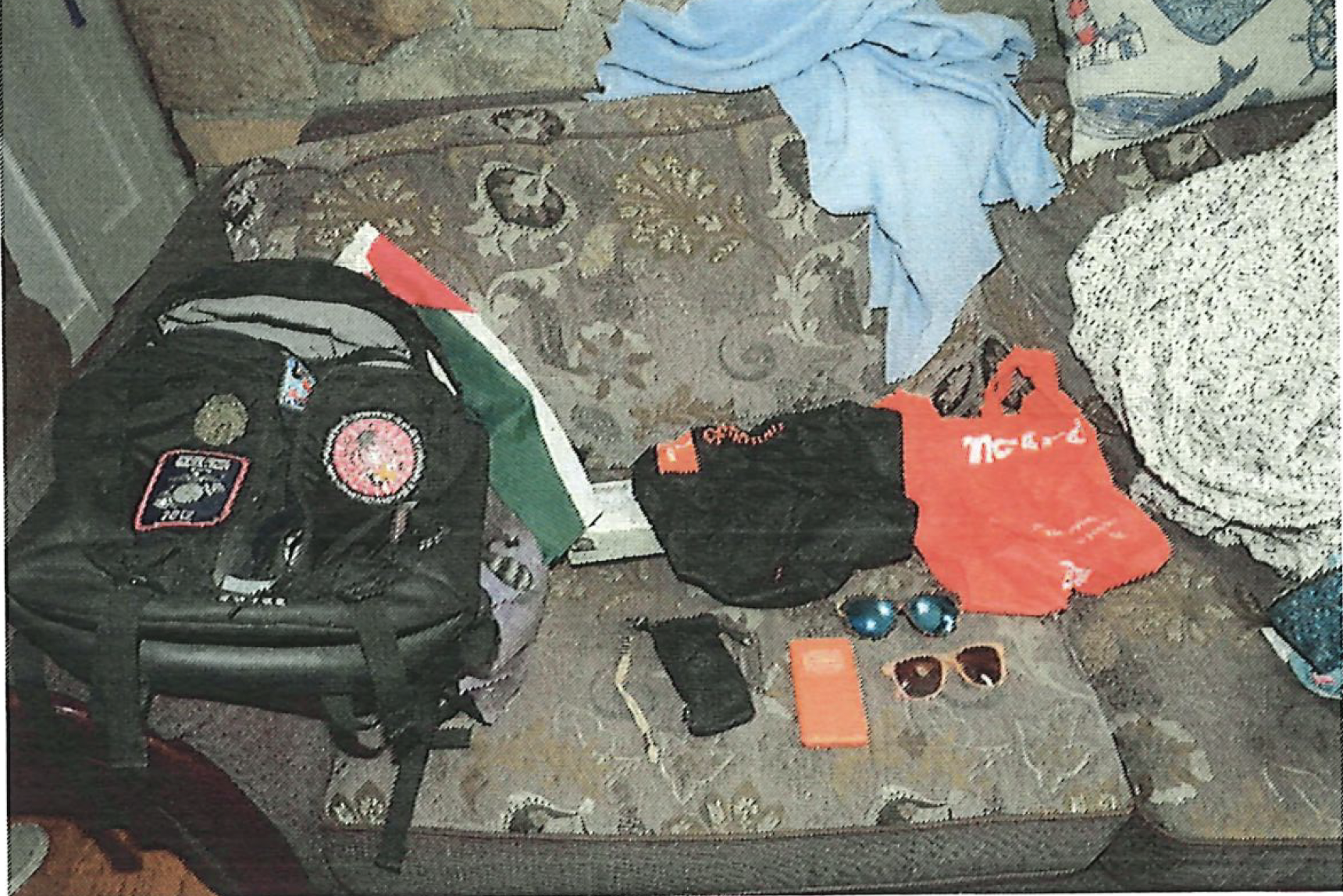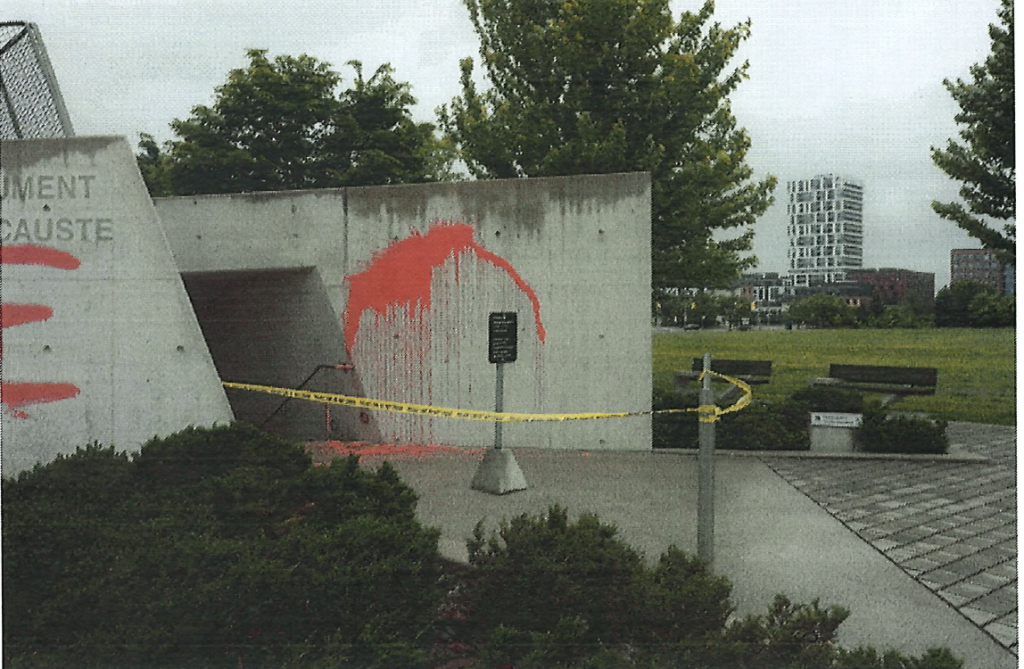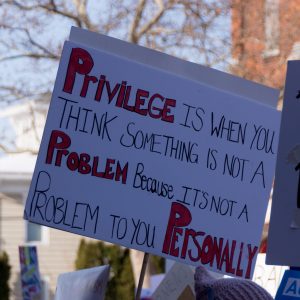Newly public court documents about Iain Aspenlieder, the former City of Ottawa lawyer who pleaded guilty on Friday July 25 to defacing Canada’s National Holocaust Monument earlier this year, paint a complicated picture of a person whose personal life took “a rapid downward spiral” around the same time as he developed a “growing devotion to a cause” about the Israel-Gaza conflict.
Aspenlieder, 46, was granted bail with strict conditions after signing a guilty plea to the single charge of commiting mischief against the Holocaust structure, west of Parliament Hill, in the pre-dawn hours of June 9. Two other existing charges will likely be withdrawn, legal sources said.
Aspenlieder spent four weeks behind bars after his arrest by Ottawa police on June 27. Superior Court Justice Anne London-Weinstein granted him bail. His sentencing process will begin in the fall.
Aspenlieder was required to leave Ottawa and to live with his retired parents in Everett, Ont., a small community southwest of Barrie. He was to be fitted with a GPS tracking bracelet. He must not leave their home without permission, and he must stay off social media. He can’t possess spray paint.
He also is not permitted to discuss the Israel-Gaza situation, except with doctors and his lawyer. That restriction raised some initial objections from the judge, who discussed with lawyers on Friday July 25 whether the ban was too broad, since many people are talking about the topic. The Crown felt allowing the topic to be freely discussed could “trigger” a possible escalation.
Another bail condition requires Aspenlieder to stay away from Jewish and Israeli buildings.
Listen to The CJN’s North Star podcast hosted by Ellin Bessner from July 28.
What happened before June 9
Until the guilty plea, members of the media had been permitted to report only basic details of Aspenlieder’s story and his court process, due to a ban on publication. But with the guilty plea, the ban has been lifted.
For nearly twenty years, Iain Aspenlieder held a lucrative position as a lawyer for the CIty of Ottawa. He told the court that he dealt mainly with insurance, defence and personal injury law. The Sunshine list website said his most recent salary level was approximately $148,000 per year.
In his spare time, Aspenlieder had been an avid marathon runner and had played ball hockey with several local Ottawa recreation leagues. He also cycled. Aspenlier’s personal Flickr photo account shows him recently spending time with his two pre-teen children, and taking artistic photos of city life.
Several years ago, he split up with the mother of his children. The former couple had shared custody arrangements. He had since been in a relationship with a new woman.
According to his mother Jane’s statement to police, the family had become worried about Aspenlieder about six months ago, in November 2024. The court was told “he went down the wrong path”.
Aspenlieder took a leave from his job with the city around Christmas time, for depression. He began seeing a therapist and went on prescribed anti-depressants.
Sometime in January 2025, his mother said, her son had sent out what she described as a “disorganized rant” in emails about Donald Trump and Elon Musk and the video game League of Legends. The email, she said, went to reporters, journalists, the prime minister, his work colleagues, neighbours, and the family. “That was the catalyst for his work putting him on an involuntary leave.”
The city ordered Aspenlieder to get a note from a mental health professional before he could be cleared to return to work, the court heard.
Asperlander’s mother also told officials that before her son’s job problems, he didn’t seem to be involved with any particular political cause. However, this has increasingly been the case. Attending church with her son she noted it was “where he became particularly emotional over the crisis in Israel [sic] in the Gaza Strip.”
Aspenlieder’s mother said her son had sent out 150 emails, including to the Canadian Prime Minister, calling for Mark Carney to declare Israel’s prime minister, Benjamin Netanyahu, a war criminal, the court heard. It’s unclear if Aspenlieder told Carney about his planned hunger strike or the defacing of the Holocaust monument.
His mother told the court her son “believes in that cause, misguided as he is.”
She denied that he holds the entire Jewish community responsible for what he believes Israel is doing.
“In conversations with me in the past, it’s always been the Prime Minister, Benjamin Netanyahu,” Jane Aspenlieder told the police. “It’s not the people of Israel, it’s not the community.”
In May 2025, Aspenlider and his current girlfriend broke up after a three year relationship, his mother revealed.
On his public Flickr photo account, there is one picture from May 2025 showing a “From the River to the Sea” graffiti sprayed on a brick wall, with an inverted triangle mark, now known as a symbol of Hamas.
During the family’s regular weekend ZOOM call on Sunday June 8th, Aspenlieder informed his parents and two sisters that he was starting a hunger strike to pressure Canada on the Gaza situation.
Earlier that same day, he had gone to the Central Home Hardware store on Bank Street in the Glebe to buy paint.
Ottawa police records show Aspenlieder discussed the colour with the store employees, and they prepared three cans of bright red paint with the name “Tropical Heat”. He also bought a paintbrush.
At 2:59 a.m. on Monday June 9, security cameras at Canada’s National Holocaust Monument on 1918 Chaudière Crossing showed Aspenlieder arriving by bicycle carrying his supplies in red bags. He also wore a black backpack with a Palestinian flag sticking out.
For nine minutes, until 3:08 a.m, Aspenlieder splashed the walls of the monument with red paint, and used the paintbrush to write “FEED ME” on one wall facing Wellington Street, “which would have been abuzz with traffic later that morning,” the guilty plea statement reads.
For the next two weeks Jane and her husband David Aspenlieder, who is a cancer patient, acknowledged they became increasingly worried about their son’s hunger strike. He had been surviving only on water for 14 days by the time his father called the Ottawa police on June 25th, begging them to do a wellness check.
His mother got into her car and made the six hour drive from Everett, Ont. to Ottawa. Once there, she applied for a Form 2, which allows involuntary transfer of someone to a hospital for mental health reasons, under Ontario’s Mental Health Act.
Aspenlieder stayed for a night and two days at the Ottawa General hospital, and was assessed by several different mental health physicians, before he was released.
Meanwhile Ottawa police were closing in. They’d tracked Aspenlieder’s paint purchases and movements, and they had the surveillance footage from his shopping trip and night time visit to the Holocaust monument. They also had recovered the three cans of paint, which Aspenlieder had left behind at the scene. He hadn’t worn gloves, and he had made a single, visible handprint on the concrete.

On June 27, Ottawa police executed a search warrant at Aspenlieder’s home. They seized an orange bicycle, running shoes, the backpack and Palestinian flag, all with paint stains on them. Aspenlieder told the arresting officers he was also wearing “incriminating evidence”: a grey sweatshirt with paint splotches.
Police seized some Harper’s magazines talking about eco-protesters, and one issue about paint, and articles about antisemitism. They collected a pamphlet that asked “Why does Canada choose to be complicit in Israel’s apartheid?”
Aspenlieder told the police they had got the right man.
“Um, I accept responsibility…I did it.” Aspenlieder tells the officer.

his interview with police that day, Aspenlieder told the officer he hadn’t wanted to get caught and definitely wasn’t happy to be in custody. He complained that it was cold.
An officer asked him about his recent domestic legal problems with his ex-spouse over custody of their two children, including whether he had shown the kids videos of animal activists protesting about how chickens were being slaughtered. He was asked whether it was true that he kept a chicken foot in a bag at his home. He was also asked why he had a pentagram in a box.
Aspenlieder told the officer he had indeed shown his children the video, but it did not have any graphic footage. He declined to answer the other questions.
Aspenlieder spent his first night in jail and was back for a bail hearing on Saturday June 28 before a justice of the peace, Stephen Dibblee.
During the bail hearing, the court was told Aspenlieder was scheduled to attend a family law court hearing that had been set for July 11, where his ex-spouse was asking for full custody. Aspenlieder told the court he didn’t object to her having the kids, as he didn’t expect to be alive that long to attend the hearing, due to his hunger strike.
The court also heard his mother’s fears.
“Well, I’m not a psychiatrist. Iain would like us to believe that it’s the [Gaza] protest, but I really don’t know what his underlying motives are,” Jane Aspenlieder answered. “He’s depressed, he doesn’t have a job, he’s probably going to lose his apartment, he’s lost his kids. I don’t know if this is a form of slow suicide. I wanted help for him.”
Aspenlieder’s mother agreed that her son had “crossed a red line” when he targeted the Holocaust monument, but didn’t think he would escalate to physically hurt anyone else.
Acknowledged harm to the Jewish community
Aspenlieder told the judge he wanted to be released on bail and live out the rest of his time on a hunger strike at his parents’ home, where he would lie on the couch and watch TV.
When asked whether he might abide by all the bail restrictions, should it be granted, Aspenlieder promised he would not attend protests or get mixed up in Israel-Palestine politics while in his parents’ supervision, even if the court process could last up to a couple of years.
“I don’t have any plans, designs, ideas. I’m not impulsive. I don’t plan to continue any activist activities beyond the hunger strike,” Aspenlieder told the court on June 28. “I don’t want to be in custody. It’s a pretty significant deterrence. I appreciate the effect that this has had on my family, on the Jewish community in Ottawa, and across Canada.”
But the justice of the peace Stephen Dibblee, ordered Aspenlieder kept in custody over the long Canada Day weekend until July 2, when the bail decision would be issued.
On June 29, the City of Ottawa fired Aspenlieder.
Back in court on July 2, Aspenlieder’s application for bail was denied and he was ordered to remain in custody.
In his reasons, Dibblee was unequivocal on the damage but also on the potential threat of further violence which Aspenlieder’s case might spark.
“The act of defacing a national monument, which is there to honour specific ethnic groups, and the accused seeking to send a message to the leadership of their country on a national stage, and the resulting outrage, could be seen as weaponizing through extreme hatred, targeting the vulnerabilities of a section of our community,” Dibblee told the court.
He didn’t want to give Aspenlieder an even wider platform to become a “martyr”, and wanted to keep him from expressing his political views to the media–and especially, revealing the hunger strike.
“Mr. Aspenlieder has made it very clear that he intends to pursue this act. In obtaining release, it risks giving him the direct access to seek media attention and to further email campaigns that play off the attention that has already been garnered by his arrest,” said Dibblee. “It demonstrates the possibility of a risk of calculation on Mr. Aspenlieder’s part to push his cause for national spotlight attention. This is only reinforced by the apparent position that Mr. Aspenlieder seeks to give his life under the premise that he is doing so for a cause.
“Even, to a lesser degree, there is a potential for mental harm to be inflicted on a portion of the community by Mr. Aspenlieder taking a prolonged stand and potentially positioned to martyr himself in the cause,” Dibblee added.
The continued coverage of the incident and sharing of the photos perpetuates the harm the act caused, he said.

The justice of the peace made note of the facts that Aspenlieder, who is an experienced lawyer, with no criminal record, was of sound enough mind to calculate and plan his political activities, knowing he would likely lose his job. He initially declined to get legal counsel for himself, and continued to ignore the court’s advice to stop incriminating himself.
Dibblee also felt that jail was a safer place for Aspenlieder to be, while on a hunger strike.
“Given extreme views towards, and a route towards potentially near-death outcome, the Court has considered the possibility that a detention setting, with 24-hour surveillance, and an on-site medical team, may actually be preferable to that of being isolated in a country setting, far from medical and assistive programming,” he wrote.
“It is possible that Mr. Aspenlieder sunk into deep depression, and has turned to fighting for a cause as a way to try to find significance in his life. His mother called him being misguided. Be that as it may or not, he has undertaken to do so in a radical and extreme fashion. His convictions in this matter have become absolute.”
After being denied bail, Aspenlieder was sent back to jail on July 2, where he called off his hunger strike.
The Crown agreed to the guilty plea rather than go to a trial, according to the court records, because Aspenlieder acknowledges the harm his act caused to the Jewish community. In the upcoming sentencing hearings, the government intends to ask for jail time.
“I understand that the Crown is likely to seek a penitentiary sentence and submit that the criminal conduct in this case is motivated by bias, prejudice, or hate, or the conduct is biased, prejudiced or hateful,” reads Aspenlieder’s signed plea. “Moreover, I understand that the Crown will submit that the offence is [sic] question threatens the rule of law by attempting to achieve political ends by unlawful acts just like the Freedom Convoy.”
Not motivated by hate: defence lawyer
Aspenleider’s defence lawyer, Michael Spratt, denied that his client was motivated by anti-Jewish hatred. Instead, he told The CJN in a written statement, his client has accepted responsibility for his actions.
Aspelider, Spratt said, was spurred to act out of “a profound sense of compassion and moral urgency, not by hatred of prejudice.
“He looks forward to demonstrating that his motivation was rooted in a desire to call attention to human suffering, not to cause harm or spread intolerance,” Spratt said.
His lawyer pointed to what he describes as “an undeniable humanitarian crisis unfolding in Gaza” and gave as an example Prime Minister Mark Carney’s recent statement from July 24 condemning Israel for “violating international law”.
Canada condemns the Israeli government’s failure to prevent the rapidly deteriorating humanitarian disaster in Gaza.
— Mark Carney (@MarkJCarney) July 25, 2025
Israel’s control of aid distribution must be replaced by comprehensive provision of humanitarian assistance led by international organizations. Many of these are…
Reaction in Ottawa’s Jewish community
The remarks by Aspenlieder’s lawyer have outraged some members of the Ottawa Jewish community who supervise the ceremonies and learning activities held at the National Holocaust Monument.
Mina Cohn, the chair of the Centre for Holocaust Education and Scholarship, welcomed Aspenlieder’s acknowledgement of the pain his actions caused, but described the continuing trauma Holocaust survivors and their descendants feel because of it.
“I would say that defacing the monument in the middle of the night is not just something that has no intention. This vandalism is definitely clear to everybody that sees it for what it is,” Cohn told The CJN’s North Star podcast on July 28. “What he did is an assault on the memory and respect of not just six million Jews, but I think on Canadian shared morals as well.”
Cohn recalled that the paint attack came just a few days before she was supposed to hold the public launch of a digital app that provides visitors with a self-guided learning tool and background information about the monument.
“And calls came in from the community, from descendants of survivors, asking me to postpone it because they were afraid, they were afraid to come. And we have a few people that cancelled their participation because of it. They were so fearful, they didn’t know at the time who did it, what does it mean, where would it lead? Would it be safe to be at the monument?,” Cohn recalled.
For lawyer Lawrence Greenspon, who co-chairs the National Holocaust Monument Committee, it is a dangerous practice to separate political protests against Israel and the targeting of local Canadian Jews.
“It’s the unfortunate link that everybody makes these days, which is, you know, ‘We’re not antisemitic, we’re not anti-Jews, but we really don’t like what’s happening in Gaza.’ So here you have a message which, in and of itself is not hateful: “Feed me”. It’s not a hateful message, but look where the guy put it. He put it on the National Holocaust Monument,” Greenspon said.
“He desecrated the equivalent of six million Jewish tombstones by his action. That’s what he did. So it’s ridiculous to say that this was not motivated by hate. Aspenlieder himself made the connection between Gaza and what’s happening there and Jews. And it’s this kind of connection, this kind of link which fuels antisemitism worldwide.”
Greenspon agrees that a guilty plea is a silver lining because it ensures the case won’t go to trial, which would have provided an even bigger public platform for Aspenlieder’s political views to be shared.
Both Greenspon and Cohn hope their groups will be able to provide victim impact statements during the sentencing process. Asked what an appropriate sentence might be, Cohn wants to see Aspenlieder lose his license to practise law in Ontario.
The justice of the peace in the case, Stephen Dibblee, noted that as a lawyer, Aspenlieder should be held to a higher standard of behaviour and professionalism.
Greenspon felt Aspenlieder might get credit for the 30 days he has already served in jail, and that in itself could be enough of a deterrent to prevent copy cat attacks.
Author

Ellin is a journalist and author who has worked for CTV News, CBC News, The Canadian Press and JazzFM. She authored the book Double Threat: Canadian Jews, the Military and WWII (2019) and contributed to Northern Lights: A Canadian Jewish History (2020). Currently a resident of Richmond Hill, Ont., she is a fan of Outlander, gardening, birdwatching and the Toronto Maple Leafs. Contact her at [email protected].
View all posts









